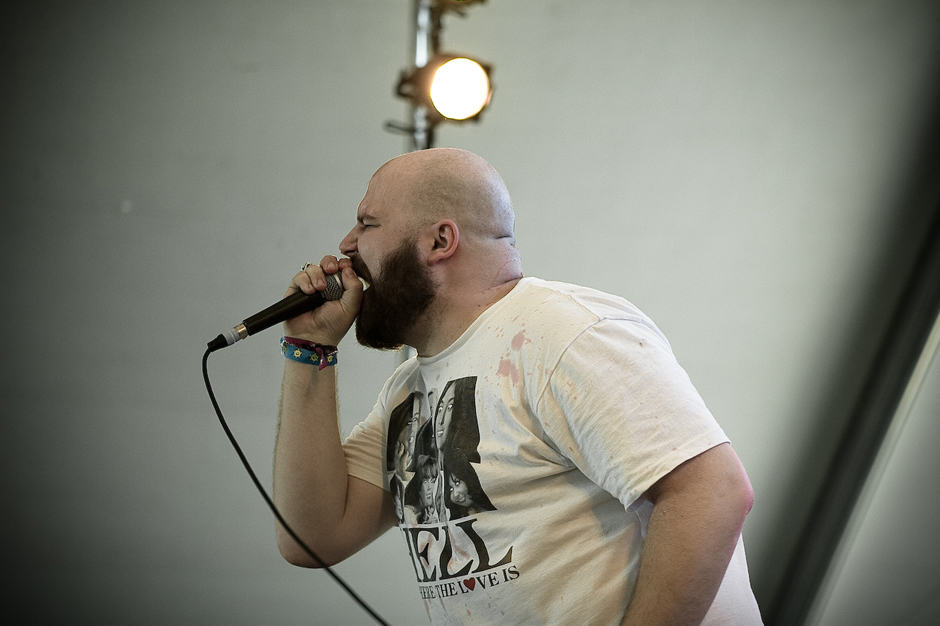This past Monday, spectators packed into the TIFF Bell Lightbox for the ArtsVote Mayoral Debate. Moderated by Toronto native and Fucked Up lead singer Damian Abraham. Hosting the event at the high profile Lightbox Theatre gave the event an air of sophistication. I couldn’t help but stare at everyone that surrounded me in line. They were all well-dressed, well-groomed, and smiling; the quintessential Toronto mix of equal parts professional and hip.
ArtsVote is an initiative founded in 1993, which aims to bring awareness and recognition to the arts in Toronto. They have released their “Report Card” through four municipal elections, a system of tracking the candidates’ goals and aspirations, as well as their previous track record on arts issues. Co-chair Jacoba Knaapen introduced their four key issues for the upcoming election, or what they believe the Toronto arts need. These issues were “Arts and Culture Champions at City Hall;” “Affordable Spaces to Live, Work, and Play;” “Sustainable Funding and Growth in Investment;” and “A Committed Partner in Every Neighborhood.”
After her introduction, Knaapen introduced Abraham, with a pause both before and after saying “Fucked Up” aloud, cuing the first round of laughter from the crowd. Abraham walked onstage in an ArtsVote t-shirt, jeans, and bright yellow sneakers, absolutely beaming at the crowd through a healthy amount of facial hair. He explained his expectations for the debate — that he had come up with the first set of questions himself, that candidates would generally have one minute to answer, and that he would not tolerate bigotry from anyone, because “that’s not politics, that’s just BS.”
With that, the audience cheered, and the debate began. The first round of questions explored what candidates feel the role of the arts is in the city, and how candidates would help Toronto grow as a cultural capital if elected. Certain candidates emerged with a strong focus — Olivia Chow highlighted her long history of involvement with the arts, often mentioning her time spent on the board of the Art Gallery of Ontario. One of her strongest points was the proposal of a public arts fund, in response to a question about maintaining funding and increasing investment.
Candidates Ari Goldkind and Morgan Baskin both stood out for their impassioned views. Goldkind was vocally the boldest candidate, and gained woops and cheers from the audience with statements like “the arts are not only about the bottom line,” and that we should “bring ‘pride’ back to Toronto,” which was both a statement of support for the arts, and a jab at candidate Doug Ford. Baskin, the 19-year-old candidate, strongly upheld her commitment to youth empowerment and involvement in arts and culture. Her policy was sometimes unclear, but her strongest points included finding and supporting already existing festivals and arts initiatives in the city (rather than bringing in new ones), and working with city planners to create new cultural spaces.
In Baskin’s opening statement, she rattled off a list of arts initiatives and events that Ford had previously voted against. Despite this, which merely encouraged the participation of the livelier audience members, Ford didn’t waver throughout in his support of the arts. However, his support was manifested in a few clear points, which seemed arbitrary given the amount of attention he paid them. In almost every answer he advocated bringing a musical festival to Toronto, similar to SXSW, Austin City Limits, or Lollapalooza. The audience groaned at the repetition, and, in one rebuttal, Goldkind shouted, “Austin should be copying us.”
Candidate John Tory advocated for the arts as a practical means for supporting Toronto both as a livable city and a tourist destination. His ideas included advocating for policies like multi-year funding to smooth out inconsistencies, making it easier to obtain permits to increase production, taking advantage of existing festivals (such as TIFF), and even planning housing to help budding artists.
It became clear through the candidates’ answers that there was tension between prioritizing monetary gain and investment in Toronto arts, and grassroots efforts like education, youth involvement, and supporting existing artists struggling in the city today. One of the most fascinating ideas that came up was the notion of implementing a Creative Director position for the city, an idea that has already seen success in cities like Boston, Mexico City, New York, and Manchester. Abraham applauded the good behavior of the candidates throughout, and lightened the mood when he could — midway through the debate, he noted that if it were up to him, “there would be more swearing and shirts off, but we have to stay on track.”


